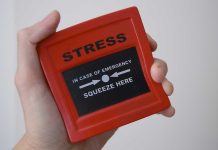
(DailyDig.com) – Some advisors say you should never keep more than $1,500 in your checking account. The truth is that the exact amount varies according to your cost of living (in a more expensive area you may need more of a cushion because of the size of your rent or mortgage payments). But there is such a thing as having an “overstuffed” checking account.
How Much Should You Keep In Your Checking Account?
It does depend. $1,500 is a good amount, but is too low for many people. Another way to determine it is to always keep four to eight weeks of living expenses, plus 30% to ensure you don’t overdraw. If your account has a minimum balance, add that too so you don’t end up paying fees.
You want to make sure that when the rent or mortgage goes out, you don’t overdraw, but at the same time, a checking account is not the best place to keep large amounts of money. Why? Most checking accounts don’t pay any interest. In fact, the bank is the only entity that earns interest on your checking accounts. Even if your account is interest-bearing, the amount tends to be small.
What To Do With The Rest?
So, what should you do with the rest of your money? One good option is a high-yield savings account. If you keep it with the same bank, then you can easily use online transfers to pull money from it when you have a large planned expense, such as that cruise vacation or the new deck your home really needs.
However, there are other great things to do with that extra money. Here are some suggestions:
- Pay extra on your debt, especially your mortgage. In the long term, paying off your mortgage faster can save you a lot of money in interest. For many people, making paying down the balance on their mortgage a priority greatly increases financial security. As an even higher priority, pay off your credit card debt and make a new habit of paying off the balance every month. If you have a lot of debt, make use of the snowball method.
- Invest. Put your money into solid bets such as multi-family real estate or shares that aren’t likely to drop. Micro-investing (where you can put in as little as $5 through a phone app) has become a hobby for many people. For larger amounts, you may want to work with a broker who can help you best place your money.
- Create an emergency fund. Make a separate high-yield savings account and build it up until you have about six months’ income in there. That’s your rainy day fund, which you tap only in genuine emergencies such as losing your job, a medical crisis, or an unexpected need for a new roof.
- Create accounts for future needs. If you have children, make an account for their education. Make another account for travel. If you put your travel budget in a higher yield account you won’t need to spend as long to save for an expensive vacation. It’s also important to have an account for long-term care. If you keep each of these separately then the temptation to borrow from Peter to pay Paul is substantially reduced.
- Increase your retirement contributions. Pay a bit more than the minimum into your 401(k) so that you have more money to live on in retirement.
The bottom line is that the best place to keep a lot of money is almost never your checking account. Instead, look into places to put it that will make you more money and, above all, pay off your debt.
Copyright 2023, DailyDig.com













